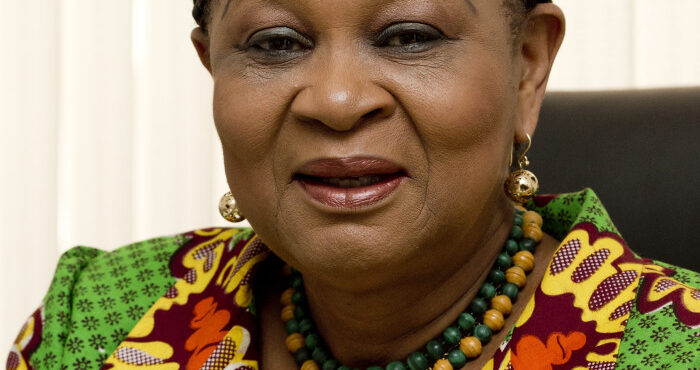POLITICS AND CHRISTIANITY

I urge, then, first of all, that petitions, prayers, intercession and thanksgiving be made for all people— for kings and all those in authority, that we may live peaceful and quiet lives in all godliness and holiness.— 1 Timothy 2:1-3.
INTRODUCTION
As Christian believers we are called to be light in the dark place, salt penetrating a rotten world. James 4:17 –“If anyone, then, knows the good they ought to do and doesn’t do it, it is sin for them.” As Edmund Burke remarked, “All that is necessary for evil to prevail is for good men to do nothing”. We Christians have a moral obligation to be involved in our world.
In Paul’s day, the form of government was empire. Although citizens could not elect Caesar, they could pray for him. It’s hypocritical to pray for some thing for which we are not willing to work. If we are obligated to pray for a government in accordance with 1 Timothy 2, then we are also morally obligated to work for it.
SHOULD CHRISTIANS BE POLITICALLY INVOLVED?
Because of that constitutional separation, Christianity in the form of the institutional, organised church is constrained from formal integration with our government. But Christianity in the form an individual’s theological identification with the body of Christ can and should play a part in the political process.
Working as individuals within the political system is not contrary to our Christian faith. We believe in the redemption of humanity, a redemption that takes place on an individual basis, not on an institutional basis. Likewise our political influence comes from the involvement of individuals, not institutions. In fact, any free and democratic society must be based on the strong participation of individual citizens. Without this, it devolves into an elitism or anarchy. The vision, abilities, character, and skills of individuals are a positive and necessary force in the democracy.
Jesus admonished His followers to become the light, the salt, and the yeast in society. “You are the salt of the earth. But if the salt loses its saltiness, how can it be made salty again? It is no longer good for anything, except to be thrown out and trampled underfoot. “You are the light of the world. A town built on a hill cannot be hidden. Neither do people light a lamp and put it under a bowl. Instead they put it on its stand, and it gives light to everyone in the house. In the same way, let your light shine before others, that they may see your good deeds and glorify your Father in heaven. He told them still another parable: “The kingdom of heaven is like yeast that a woman took and mixed into about sixty poundsof flour until it worked all through the dough.” – Matthew 5:13-16; 13:33) Wherever these elements are added, they transform the environment. In the same way, we penetrate and permeate political institutions with Christian values and beliefs.
It would be wise for all of us to carefully examine the warning provided by de Tocqueville. He said: “Once religion is mixed with the bitter passions of the world it cannot avoid losing influence: The Church cannot share the temporal power of the state without being the object of a apportion of that animosity which the latter excites.”
We can have far more impact by working within a secular political organization to help our laws reflect Christian values than by separating ourselves and banding together with other believers as a “Christian Political Movement.”
Some Christians believe that being salt and yeast means being separate from the political process. But the common denominator of every political issue is a spiritual problem. For instance, when we deal with environmental problems, we are not only concerned with the environment for the sake of the environment; we are also concerned with the spiritual issue of stewardship. When we talk about an unfair tax system rife with loopholes, we are talking about the spiritual issues of fairness and justice. When we consider the problem of corruption in politics, again we are talking about spiritual questions – honesty and integrity. We need to maintain a spiritual perspective on these secular issues.
Even if we are not involved by our actions or by public identification with a political party, we still have important political roles to play. We have a responsibility to vote. Even more important, we are instructed to pray for those in political office. “I urge, then, first of all, that petitions, prayers, intercession and thanksgiving be made for all people— for kings and all those in authority, that we may live peaceful and quiet lives in all godliness and holiness.” — 1 Timothy 2:1-3.
We need to pray for the issues confronting our society and for hurting individuals within our society. And we have a responsibility to reach out to minister to the poor.
Whether we choose to work directly in politics or to support it with our votes and prayers, the political process in democratic country gives us a vital opportunity to demonstrate our love for Christ.
Christians ought to support godly principles wherever they are found. We should vote principle not just party. What principles are worth upholding and fighting for? Godliness, justice, goodness, righteousness, life, defending the innocent, helping the poor – in other words, issues that are clearly spelled out in the Bible.
Principles translates into issues. For example, defending innocent lives is a principle, and abortion on demand is an issue. Because of their principles, Christians will know how to react on the issues of the day.
When there is a clear-cut moral issue, Christians are obligated to become involved. On some issues, however, Christians hold the same principles but disagree over the means to put them into action. War is one of those issues. Activist say a Christian should always go to war when the government commands it. Pacifists say we should never go to war, even if the government commands it. And selectivists say we should sometimes go to war; it depends on whether or not it just a war. You will find Christians on all sides of this issue. I think they all agree with the same principle – that justice and peace should be preserved – but they disagree as to the best way to arrive there.
In spite of the fact that we won’t always agree with each other, we Christians need to get involved in politics. If good people don’t get involved in running the government, then evil people will. It is not going to do us any good to curse the darkness; we have to light a few candles.
Politically, the Bible is more like a library than a single book. It is difficult to come up with a black-and-white answer that fits every diverse situation. For example, some people try to apply Jesus’ words about non-resistance (Luke 6:27-31) to every act of injustice. But in practice, I don’t know anyone who always turns the other cheek. On the other hand, Christians should not ignore those verses. Even though the verses might not apply to every situation, the One who spoke them remains decisive, and Christians need to consider what he says.
If it is difficult to know what a Christian political position is, how can Christians know what their political involvement should be? There are several guidelines a Christian can follow.
1.NOT TO BE INVOLVED IS TO BE INVOLVED. Not to take a stand is to take a stand. When we look back at history, we see that those who weren’t for the abolition of slavery were contributing to its existence. Those Catholics and Lutherans in Germany who didn’t speak up against Hitler were, in a sense, supporting him. They weren’t taking a stand when a stand was needed.
Sometimes Christians will say they don’t want to be involved politically, but they are really saying they don’t care about the current political issues. Some Christians who today make fighting abortion their main cause once said it was sinful for Christians to be in politics. Once they thought there was no cause worthy of the risk of being tainted by politics; now they have found an issue.
2.POLITICS SHOULD NOT BE THE PRIME ACTIVITY OF THE CHURCH. Politics does not preach the kingdom of God. Politics does not fulfil the will of God. It does not save souls. It is simply a modest act that works against selfishness and violence.
In preaching God’s kingdom, Christians try to create a space for the presence of God in the world. In political involvement, Christians try hold God’s plumb line to the world (Amos 7:7-9). We do this even though in holding the plumb line, our hands are shaky and our perspective is distorted. God has called us to be salt and light in the world, and this is our duty.
3.LOVE GOD AND ACT REASONABLY. In deciding what stand to take, Christians should let their love for God be their filter. Beyond that they should act reasonably. They won’t choose the right stand all the time, but that is a risk they have to take.
Politics seeks to minimize violence. It works to assure that no one person or organization has a disproportionate amount of control. But working together for good can never be done without compromise. To compel attention and gather votes, Christians must make coalitions. To make coalitions, Christians must make compromises. When it comes to politics, no Christian is pure.
Christians need to be involved in politics, but we must remember not to confuse politics with bringing in the kingdom. The proclamation of the kingdom influences political action, but political action is not the centre of the kingdom.
ADVICE TO VOTERS BY JOHN WESLEY AS RECORDED IN HIS JOURNAL OF OCTOBER 3, 1774:
1. Vote, without a fee or reward, but for the person we judge most worthy.
2. Speak no evil of the person we voted against.
3. Take care our spirits are not sharpened against those that voted on the other side.
Source: Culled from the book “Practical Christianity” – The Down to Earth Guide to Heavenly Living.
Stay Blessed!
By Dr. Joyce Aryee
For further inquiries please contact us on Tel Nos. 0302-772013 or 0268130615
Email: saltnlightministries@gmail.com
Website: saltandlightgh.org












